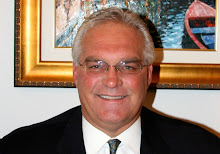Took a little time for the second post but had too many projects going at the same time. Better late than never as the saying goes.
"Those that do not learn from history are doomed to repeat it." We have not learned from regulatory changes tracing back to the 1980's.
The Shadow Banking system beginning with Money Market Funds, Commercial Paper, and Junk Bonds have morphed into a dizzying array of financial products that at the core created the crisis of confidence in our financial system. Today we are doubling down on a broken system that encourages delivering new financial products to the markets without any vetting for the need or the separation of risk and rewards. if this was not so, how did our financial system seize-up in September 2008?
Go figure, the Country needs new funding sources to leverage the bountiful liquidity heaped on the market from the Treasury and the Federal Reserve for enterprise creation (ie Jobs). At the same time the regulators are imposing a buy a bad existing bank "rule" to investors along with additional rules such as limits on deposit rates they can pay and extending the de novo to seven years (start-up period with increased Government oversight). Further, examiners of the FED, OCC, and FDIC are hammering the Community and Regional banks on credit quality and new deposit gathering rules that are akin to deposit caps that were abolished in the 80's. With the follies we have seen in the Shadow Banking markets (Money Market Funds, Collateralized Debt Markets, Commercial Paper Markets, SWAP Markets etc) you would think the Politicians and heads of our Regulatory Agencies would be looking for long-term solutions to the lessons learned.
Not happening - and in fact, just like the gambler who believes they are one hand away from their pay-day, they are doubling down instead of addressing the follies of their ways to date. Consider the FDIC and the FED's handling of the Wachovia bail-out. Initially Citi Bank was announced as the acquirer of the considerably troubled Wachovia Bank after a seemingly unsuccessful attempt by the regulators (FDIC and FED) of a shotgun marriage of Wachovia to Wells Fargo. The markets saw this as a hail-mary to bail-out Citi with taxpayer dollars. Although in the end Well's was the winning bidder, just the announcement of Citi as the stalking horse "buyer" damaged the trust needed by all market participants. Regulator's never can be viewed as choosing winners and losers by the markets and market participants. Yet they continue conduct themselves in a manner that contributes to the continued uncertainty in the markets.
Commercial Banks primary functions are to provide access to the payment system and leverage liquidity in the system by lending or investing the funds raised through funding sources (deposits, advances, debt etc). At this point I am struggling to understand the wisdom and motivations of anything in Washington. The drama and confusion over the past two years has exposed a bloated bureaucracy that believes the country's banking system needs to be reduced to ten banks. I do think we will see the separation commercial and i-banks as the risks are too great to tax payers from bad bets (trades).
As I think about a system with ten banks, I see one of two scenario's on the horizon. A new and improved version of the shadow banking system filling a void in job creation. The problem with this is the concentration of power as the ten big banks will be the leverage in the system filling a void. This is not an alternative as pointed out by Thomas Jefferson prior to the founding of America. I was incredulous when my history major son pointed out Jefferson's concern about the nation's bankers seizing control of freedom. Seems our founding fathers were obsessed with their freedom. No one currently in Washington, the State's, or local political office understand the passion of our founding fathers and the current populous, for that matter, for freedom.
The former Chairman of the Federal Reserve and current member of the Obama Administration's Economic Recovery Board, Paul Volcker's point of view is summed up as follows:
"We need to break up our biggest banks and return to the basic split of activities that existed under the Glass-Steagall Act of 1933 – a highly regulated (and somewhat boring) set of banks to run the payments system, and a completely separate set of financial entities to help firms raise capital (and to trade securities)."
The man see's the policy making playing field and more importantly understands the external influences that contributed to the global problem. Seems the Clinton Administration and Congress did not understand the risks of i-banking and the reasoning behind separating them from commercial banks.
The second scenario separates all i-bank and commercial bank operations (risky and less risky, respectively). The Too Big To Fail (TBTF) should be limited in deposit share to 5% domestically and locally. Start-ups are encouraged and approved by our regulating agencies with reasonable oversight. The notion of seven years of supervision is ludicrous. Frankly, the Regulators that started this one should be taken to the woodshed and replaced. Classical example of Regulators in need of leadership with appreciation of historical lessons or, candidly, an adult's oversight.
Time for all Policy-makers to take a step back, see the playing field, and reach for the re-start button. Support for Community and Regional Banks are part of the solution to on the ground intelligence required to properly manage risk.
NUFF SAID, for now.
Business, economic, and political realities effecting Main Street USA. Strategy, tactics, and trends observed that effect the local balance of independence / prosperity in the backbone of the American economy - Small and Middle-Maret Business.
Subscribe to:
Post Comments (Atom)

No comments:
Post a Comment